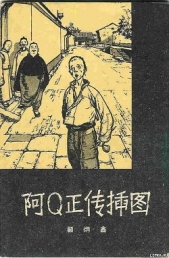Candy (chinese)

Candy (chinese) читать книгу онлайн
An international literary phenomenon-now available for the first time in English translation-Candy is a hip, harrowing tale of risk and desire, the story of a young Chinese woman forging a life for herself in a world seemingly devoid of guidelines. Hong, who narrates the novel, and whose life in many ways parallels the author''s own, drops out of high school and runs away at age 17 to the frontier city of Shenzen. As Hong navigates the temptations of the city, she quickly falls in love with a young musician and together they dive into a cruel netherworld of alcohol, drugs, and excess, a life that fails to satisfy Hong''s craving for an authentic self, and for a love that will define her. This startling and subversive novel is a blast of sex, drugs, and rock ''n'' roll that opens up to us a modern China we''ve never seen before. – Banned in China -with Mian Mian labeled the ''poster child for spiritual pollution''-CANDY still managed to sell 60,000 copies, as well as countless additional copies in pirated editions. – CANDY has been published in eight countries to date and has become a bestseller in France.
***
Sex, drugs, and rock 'n roll: ingredients for novels about modern China? Yes, SHANGHAI BABY by Wei Hui (Pocket Books, 2001) showed international readers modern Chinese youth were not immune to the running dogs of Western decadence: Globalization might even include mixing with dissolute foreigners. Following SHANGHAI BABY to English by a few years, Mian Mian now suggests with CANDY the decadence is more likely homegrown, possibly an inevitable side-effect of China's ascension to manufacturing colossus for the world. After this first novel by Shanghainese Mian was banned in China -an "honor" Wei Hui also earned – she was labelled a "poster child for spiritual pollution."
The buzz made CANDY an underground bestseller.
Whether Mian Mian harvested autobiographical details for her protagonist Hong's drug-plagued odyssey is open to question. She prefaces the novel with a note: "This book exists because one morning as the sun was coming up I told myself that I had to swallow up all of the fear and garbage around me, and once it was inside me I had to transform it all into candy. Because I know you all will be able to love me for it."
In a larger context, Hong's story, the characters in her life, often resonate with American stories we've heard of the Old West and Gold Rush days (whether in California or Alaska). She leaves Shanghai to seek her future in the new frontier of the Special Economic Zones the Chinese government created along the south coast in the 1980s, near Guangzhou. Not only did the SEZs permit a laissez faire approach to business-much of the Confucian social rules that apply elsewhere are ignored. In the SEZ thick with fortune seekers and finders, prostitution flourishes, as does alcohol and drug addiction.
Hong, only 17, has dropped out of a competitive high school, somewhat dispirited by the suicide of a classmate (an echo of Murakami's NORWEGIAN WOOD), when she leaves for the south. There she meets a young musician Saining and they become lovers, so often hopeless for each other and so often hopeless for their addictions. They survive, slacker-style, largely by the generosity of Saining's mom, who lives in Japan.
Hong's love for Saining has compelling moments of violence, promiscuity, and druggy indifference. But the greatest achievement of Hong's story, perhaps, is the honest testimony to the erasure of desire, the great sucking away of soul only addiction can wreak on a love that nonetheless won't go away. From a null point, from a Murakami-esque death in life, Hong goes on to find redemption can be hers.This stark portrait is not without lighter moments. For example, Hong's friend Bug is convinced he has AIDS. The horror of that discovery is brought alive. Page after page: consultation with friends, plans to leave the country, examination by a Beijing AIDS specialist. Finally, the revelation too many OTC drugs to get high had caused the troubling symptoms.
Like Murakami's post-consumerist young generation in Japan, Mian Mian suggests the same search for individual authenticity is underway in China. As China 's economic engine gains force, so does disillusionment among the young with the old ways. Hong suggests her ambivalence towards China 's rising star: "The moment the plane left the ground, I fucking burst into tears. I swore I would never come back to this town in the South again. This weird, plastic, bullshit Special Economic Zone, with all that pain and sadness, and the face of love, and the whole totally fucked-up world of heroin, and the late 1980s gold rush mentality, and all that pop music from Taiwan and Hong Kong. This place had all of the best and all of the worst. It had become my eternal nightmare." Hong awakes before the CANDY is gone. Mian's compassion for youth of New China elevates and brings irony to a story lesser writers might have passed off as sensation-ridden heroin chic.
Внимание! Книга может содержать контент только для совершеннолетних. Для несовершеннолетних чтение данного контента СТРОГО ЗАПРЕЩЕНО! Если в книге присутствует наличие пропаганды ЛГБТ и другого, запрещенного контента - просьба написать на почту [email protected] для удаления материала
第一章
A
父亲为什么会把我逼到蒙娜丽莎面前,并且给我听交响乐?我想这是那种叫做命运的东西。到了27岁,我才敢向他提起这个问题(以前我甚至怕提到这个女人的名字)。他说肖邦是好东西,当我号陶大哭,他就是要把我一个人关在屋子里听肖邦。那时周围没有人家像我们一样拥有唱机和电视机,那时@、布、油等物品还在实行配给制,那时周围有很多邻居还靠到菜场拣菜叶过生活,而我们是这幢楼里唯一的知识分子家庭,父亲认为我应该感到幸运。
父亲说他根本想不到我会怕那幅挂在墙上的复制品,他说你为什么不看挂在旁边的世界地图、中国地图,或者我的图纸,你为什么要看那幅画像?最后他说那么,你为什么会那么怕她?
很多人问过我这个问题,问多一次,我的恐惧就减少一次。我没有办法回答这个问题。
就像我不明白在我那么小,几乎还不怎么会说话的时候,我的父亲为什么用这么一种方式来对付我的哭泣。
因为太害怕,其实到现在我都没仔细看过这个女人,然而有关童年的记忆,最清晰的,就只有这个女人的画像。
长大一点的时候,我开始确定:她的眼睛,就像一场正在发生的车祸;她的鼻子,是黑暗发出的一道命令,是黑暗里笔直的梯子;她的嘴角,是灾难的漩涡;这个女人几乎没有骨头,除了她的眉骨,她光秃秃的眉骨,是无所不在的嘲讽;她的衣服,是一个能把我拐走的大伞,还有她的腮,她的手指,毫无疑问像腐烂尸体的一部分。
这个女人权危险,而我曾是如此靠近这危险,似乎我什么都不怕,就怕看见她。在历史课上,在这幅画像的幻灯片面前,我曾持续惊叫,喉咙发紧,因此被老师当成坏学生罚站,接着被叫到教导处训话,并被追问是否看过黄色手抄本《少女之心》。
从那时起,我开始恨画她的那个人,我恨所有自称自己是“知识分子”的人,这种恨就是很,当我敞开我的心扉,这痉挛着的愤怒便跳动在我的血液里,我把这种感受命名为“恨”。
对于这幅画像毫无疑问的惊恐,带走了我对父母所有的亲密,并使我过早确定了这个世界是不可知的。
渐渐的,我找到了对付这种恐惧的力量,那就是月亮,月光;或者像月光一样的光线;像月光一样的眼睛。嘴唇;或者像月光一样的男人的背。





















